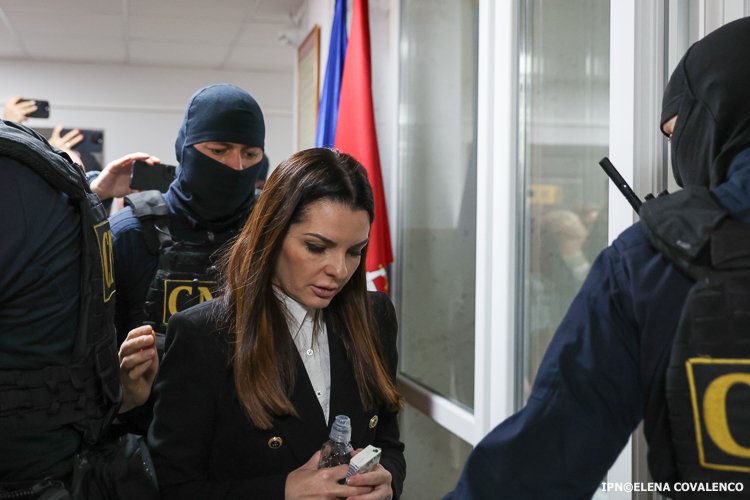
The Kremlin’s Shadow Over Moldova: Election Interference in the Run‑Up to 2025
Moldova’s democratic journey has repeatedly been undermined by sustained and evolving interference from the Kremlin. As early as the 2021 parliamentary elections, reports uncovered coordinated efforts by Russian operatives and fugitive oligarch Ilan Shor to destabilize President Maia Sandu’s pro-European government. The U.S. Treasury warned of Moscow’s attempts to “subvert [Moldovan] democracy” by orchestrating political alliances aimed at legislative capture in Russia’s interest.
By the 2023 local elections, Kremlin-backed vote‑buying operations had grown in scale and sophistication. Analysts estimate that approximately $55 million was funneled into bribery schemes, notably orchestrated through networks in Gagauzia, Orhei, and Taraclia. Beyond cash inducements, hybrid tactics proliferated: cyberattacks targeted electoral infrastructure, bomb threats were phoned into diplomatic missions, and orchestrated protests became standard features of Moscow’s destabilization toolkit. A “hack-and-leak” subversion model also emerged, designed to heighten fear and erode public trust in democratic institutions.
During the critical 2024 presidential election and EU membership referendum, interference escalated to unprecedented levels. Moldovan prosecutors revealed that approximately $15 million, channeled through accounts linked to Russia’s Promsvyazbank, had reached as many as 130,000 voters, with individual payouts reportedly as high as €200. Meanwhile, the infrastructure supporting disinformation, illicit financing, and cyber disruption functioned as an integrated, multi-tiered campaign, likely managed under direct Kremlin oversight.
Evghenia Guțul and the "Russification" of Gagauzia
In mid‑2023, Evghenia Guțul rose to power as the governor of Gagauzia, propelled by the now-outlawed pro‑Russian Șor Party and backed by a sophisticated vote-buying operation. Once installed, she openly pursued a "Russification" strategy: strengthening ties with Moscow, inviting Russian businesses and cultural actors into the region, and embracing Kremlin-aligned messaging in a part of Moldova historically alienated from Chișinău. In Gagauzia where Russian remains the lingua franca and pro-Western sentiment is minimal, Guțul found fertile ground for promoting autonomy and anti-European rhetoric.

Her election and subsequent tenure encapsulated the Kremlin’s long-game strategy: using regional leadership to entrench influence over Moldova's Russian-speaking periphery. Gagauzia, long marked by a semi-separatist political culture and nostalgic ties to the Soviet Union, served as a geopolitical lever for Moscow.
The legal reckoning came in August 2025. A Moldovan court sentenced Guțul to seven years in prison for illegally funneling Russian funds to support the Șor Party between 2019 and 2022. She remains under EU and U.S. sanctions for promoting separatism and receiving illicit financing from Shor and Russian operatives. Russia denounced the verdict as politically motivated, while Guțul vowed to appeal. Her conviction underscored the contested nature of state authority and the rule of law in Moldova’s hybrid threat environment.
Ilan Shor: The Architect of Hybrid Subversion
Ilan Shor’s trajectory from convicted oligarch to Kremlin proxy has been central to Moldova’s political vulnerabilities. In 2014, he was implicated in the so-called “theft of the century,” in which $1 billion, roughly 10 percent of Moldova’s GDP, was siphoned from the banking system. After fleeing to Israel in 2019 and later relocating to Moscow, Shor continued to influence Moldovan politics from exile, leveraging media holdings, funding protests, and coordinating political entities despite the Șor Party’s official ban in 2023.
Shor’s enduring influence lies in his adaptability. After his party was outlawed and its senior figures arrested for illicit financing, a constellation of successor groups emerged such as Revival, Chance, and the broader Victory Bloc, all operating within his informal political ecosystem.
Between 2022 and 2024, his operations evolved into a full-spectrum hybrid campaign: engaging in vote-buying, deploying disinformation platforms, directing cyberattacks, and coordinating with Russian state media. Leaked communications and investigations have confirmed cooperation with RT and senior Russian propagandists such as Margarita Simonyan. In April 2024, the Victory Bloc was officially launched in Moscow, comprising figures such as Guțul and Marina Tauber, and openly advocating Moldova’s accession to the Eurasian Economic Union and federalization alongside Gagauzia and Transnistria under Russian strategic auspices.
These activities have not gone unnoticed. In July 2025, the European Union imposed sanctions, freezing assets and banning travel, for seven individuals and three entities linked to Shor’s network, citing their role in destabilizing Moldova’s democratic processes.
Resilience Amid Encroachment
Russia’s long-standing campaign to subvert Moldova’s sovereignty has reached a dangerous maturity—combining covert financing, cyber warfare, disinformation, and regional political infiltration into a seamless hybrid threat. Gagauzia now serves as a microcosm of this broader strategy: russify the periphery, embed loyal actors, and erode central authority from within. Ilan Shor remains the nodal figure, commanding a transnational influence operation from Moscow.
Yet Moldova has not remained passive. Prosecutorial action, EU-coordinated election monitoring, the dismantling of pro-Russian media outlets, and the imposition of targeted sanctions have demonstrated a nascent but maturing democratic resilience. The upcoming 2025 parliamentary elections will serve as a litmus test: can Moldova’s fragile democracy withstand a multi-pronged campaign designed to return it to Russia’s geopolitical orbit, or will the country consolidate its European trajectory amid unprecedented external pressure?